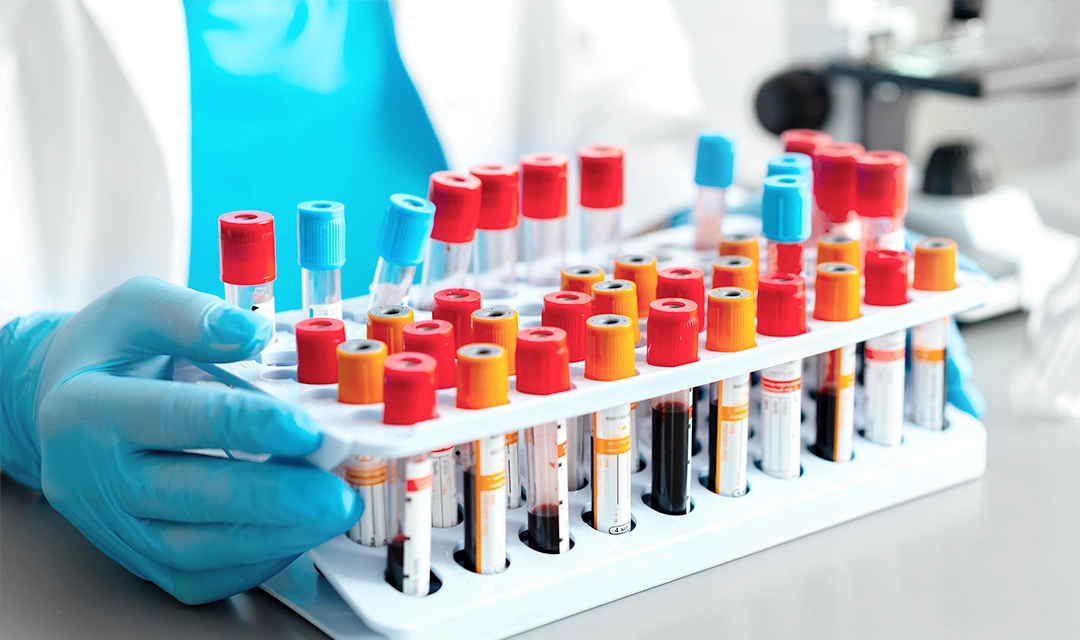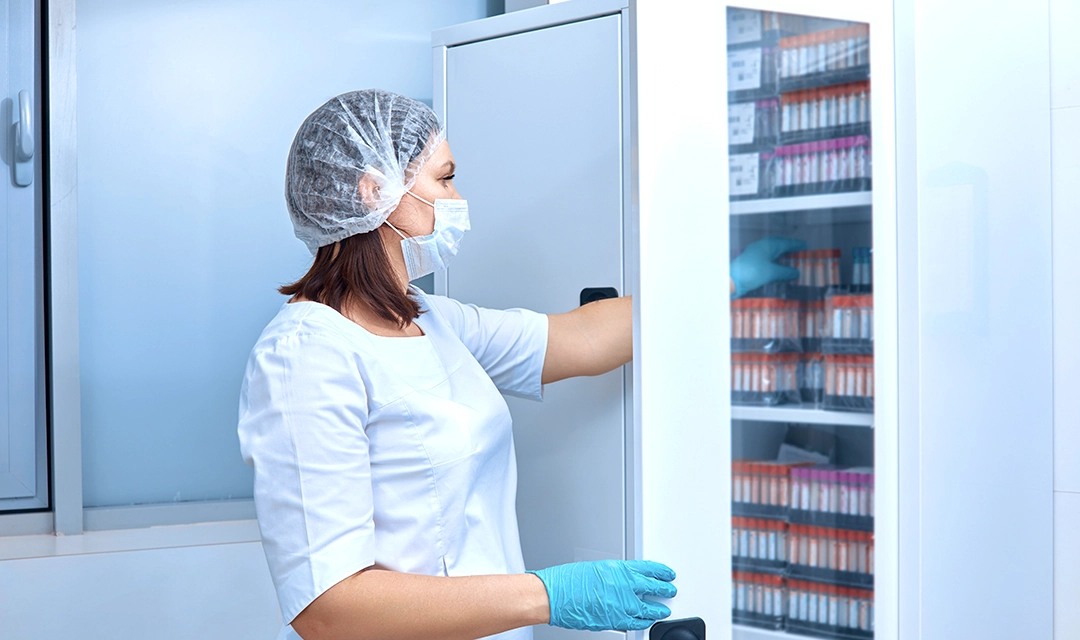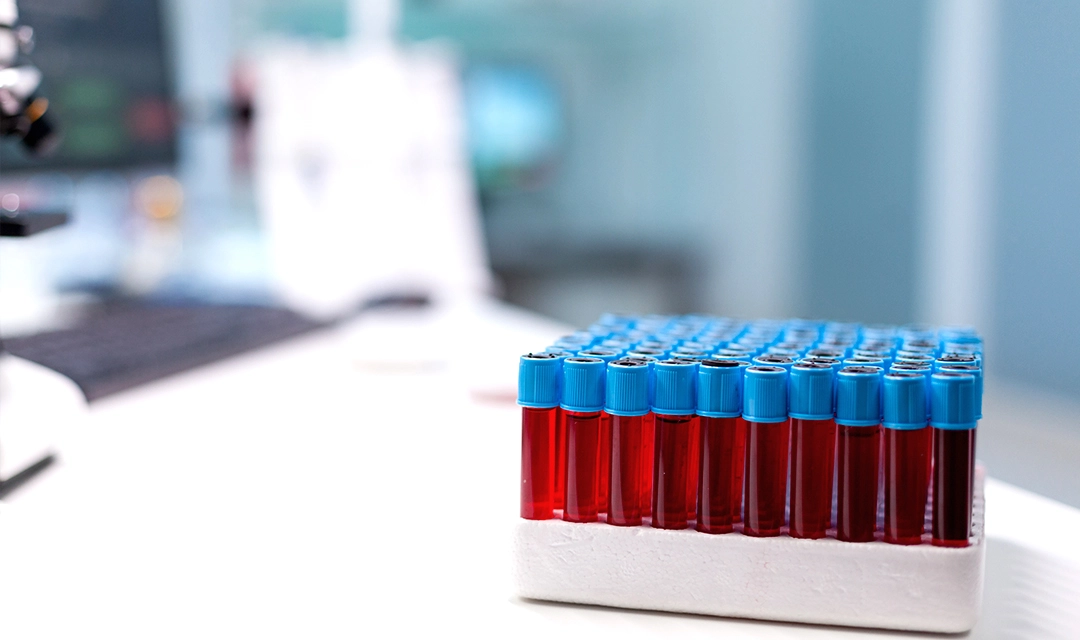- +1 (408)580-1396
- info@iBioSpecimen.com
Human Biospecimens
In today’s advanced medical landscape, the process of obtaining the specific types of human biospecimens you require has become remarkably streamlined. With the revolutionary platform known as iBioSpecimen, accessing a wide array of patient-level data, along with the human biospecimens themselves, has been made easier than ever before.
One of the primary advantages of utilizing h iBioSpecimen is the unprecedented access it grants you to diverse patient populations. This means you can now tap into a vast pool of individuals from various demographics, medical histories, and geographical locations, enhancing the comprehensiveness of your research or medical initiatives.
Moreover, iBioSpecimen extensive global network of human biospecimen suppliers plays a pivotal role in ensuring your success in obtaining the required samples. These suppliers are equipped to source a multitude of human biospecimens, including clinical remnants, banked samples, and prospectively collected specimens. This diverse range of sample types allows you to study and compare data from different stages of disease progression or recovery.
Streamline procurement, from inquiry to fulfillment, so you can focus on advancing your research.


Biofluids
USA offers a diverse range of human biofluids for research, enabling scientists to study diseases, develop diagnostics, and advance medical breakthroughs. These valuable resources fuel innovative research and contribute to better healthcare outcomes.


Tissue Samples
Human tissue samples are vital for medical research, aiding in understanding diseases and developing treatments. In the USA, a wealth of diverse tissue samples empowers scientists to drive advancements in healthcare and improve lives worldwide.


Matched Sets
Matched biospecimen sets are invaluable for research, providing related samples from the same individual. In the USA, these sets aid in studying diseases comprehensively, accelerating discoveries, and advancing personalized medicine.


Swabbed Samples
Source almost any kind of swab. We can assist you in locating the precise specimen you require, including nasopharyngeal, buccal, ocular, ear, vaginal, and more from healthy persons to transplant patients and beyond. Give us your requirements, and we'll take care of the rest.


Urine
Collecting urine samples from healthy and diseased individuals can help identify diagnostic markers, disease progression, or treatment response. Urine samples can come from banked sources or be collected prospectively. Delivery methods may include fresh or frozen samples.


Stool Samples
Collect feces samples that have been frozen or kept fresh using a variety of preservatives from around the world. Investigate the differences between the microbiomes of healthy and sick tissue, IBD phases, parasite phenotypes, and other cohorts.

Finding the Right Human Biospecimens for Your Research
iBioSpecimen Marketplace is a fast, compliant, revolutionary one-stop access to millions of human biospecimens and patients from a diverse network of providers
Recent Projects Made Possible
By partnering with iBioSpecimen you can access records of human biology and patients. This is made possible by our collaborative partners, including hospitals, biobanks, commercial laboratories, HIEs and other international hospitals.

Banked Plasma & PBMCs For Early Stage Cancer
Collected frozen samples: 2 mL of ACD plasma and PBMC (Ficoll separation) from 40 patients with early stage HCC.

Remnant Serum from 200 Patients
Materials obtained: 1.5 mL frozen serum samples (multiple anti-TSHR levels) from 200 patients with Graves' disease, Hashimoto's disease, and other thyroid diseases.

Prospective Blood Collection With Imaging
Strategic resources: Observation and testing data from cancer patients such as 50 mL blood sample, mammography or colonoscopy.
Custom and Prospective Collection Experts
General FAQ's on Human Biospecimens
Human biospecimens are samples of biological materials derived from the human body, such as blood, tissue, urine, saliva, or other bodily fluids, used for medical research and diagnostic purposes.
Human biospecimens are crucial for understanding human biology, studying diseases, developing new treatments, and advancing medical science. They provide valuable insights into genetics, biomarkers, and disease mechanisms.
Human biospecimens can be collected through various methods, including blood draws, biopsies, surgical procedures, and non-invasive techniques like saliva or urine samples. The collection method depends on the research goals and the type of biospecimen needed.
Collecting human biospecimens raises ethical concerns, such as informed consent, privacy, and ensuring the protection of donors’ rights. Ethical guidelines and regulations govern the collection and use of these specimens in research.
Yes, many research institutions and biobanks accept biospecimen donations from willing individuals. Donors typically provide informed consent, and their anonymity and privacy are protected.
Biobanks are repositories that store and manage human biospecimens for research purposes. They catalog, store, and distribute biospecimens to researchers, helping to advance scientific knowledge.
Challenges include maintaining sample quality, ensuring donor privacy, obtaining informed consent, and addressing legal and ethical issues. There can also be issues with sample availability and accessibility.
Biospecimens are vital in personalized medicine for tailoring medical treatments to an individual’s genetic makeup and unique health characteristics. They help identify biomarkers, predict disease risks, and select the most effective treatments.
Generally, biospecimen donation is safe. However, there may be minimal risks associated with the collection procedure, such as bleeding or infection for invasive methods like biopsies. Donors should be fully informed before giving consent.
Regulations can vary by country, but common guidelines include informed consent requirements, protection of donor privacy, and ethical review by Institutional Review Boards (IRBs) or Ethics Committees.
Biospecimens can be used for commercial research, but this often requires clear consent from donors and adherence to ethical and legal guidelines regarding profit-sharing and privacy.
The storage duration of biospecimens varies depending on the research objectives and biobank policies. Some specimens may be stored indefinitely, while others are used and discarded after a specific study is completed.
